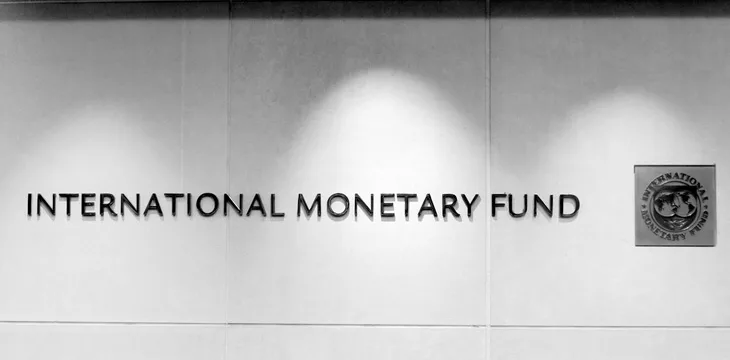|
Getting your Trinity Audio player ready...
|
An International Monetary Fund (IMF) paper has proposed a framework to help countries assess systemic risks from the digital assets space, calling for international cooperation and citing “the FTX debacle” as motivation for increasing regulation and supervision measures globally.
Titled “Assessing Macrofinancial Risks from Crypto Assets,” the IMF paper outlined the growing concerns around the digital asset space.
“Over the last few years, the private crypto asset industry has experienced rapid growth and is becoming increasingly more integrated into the global economy. It represents a new shadow financial system with substantial risk implications for the traditional financial sector and beyond,” the paper read.
The IMF pointed to failures in the digital asset space, “including the fall of Terra USD and the FTX debacle,” as the motivating factor behind ever louder calls for enhanced regulation and supervision globally. The IMF proposed its risk assessment framework to do its part in this international effort to better supervise the digital asset ecosystem.
“In this paper, we introduce a conceptual macrofinancial framework to understand and track systemic risks stemming from crypto assets,” said the paper. “Our aim is to highlight the channels through which crypto assets could amplify any turmoil in the crypto world into systemic risk.”
Specifically, it proposed a country-level Crypto-Risk Assessment Matrix (C-RAM) to summarize the main vulnerabilities, useful indicators, potential triggers, and potential policy responses related to the digital asset sector. The paper also emphasized the importance of integrating its proposed tools into countries’ existing regulatory and systemic risk assessment processes.
“The country-level analysis highlights vulnerabilities and risks, analyzes potential triggers leading to systemic risk and proposes potential policy tools,” it explained.
The framework takes a three-step approach. The first step involves a decision tree that assesses how critically important the digital asset sector is to a national economy; the second step involves examining indicators, similar to those used in traditional finance, that indicate the potential for systemic risk; and the third step examines the global macro-financial risk from digital assets that could have implications for a country’s systemic risk assessment.
While outlining the risks involved in the digital asset space and financial innovation in general, the paper did acknowledge the potential benefits the sector offers.
“With an estimated market capitalization of about $US 1.2 trillion as of end April 2023, they represent an important component of the financial sector,” said the IMF. “Key potential benefits include more efficient payment systems, faster cross-border transfers including remittances, lower transaction costs and greater financial inclusion.”
The paper also noted that digital assets resemble other risky asset classes in many ways, from a mispricing and shock transmission perspective. However, it warned of “dire consequences” if the sector is not anchored by “thorough regulatory and policy frameworks capturing the macrofinancial linkages.”
The paper pointed to two specific linkages: household and corporate exposure to digital assets. The former is a current concern due to the boom in digital assets over the past few years, increasing household exposure, meaning any market ambiguities and price fluctuations could have a wealth effect on households. In terms of corporate exposure, the use of digital assets for business activities and trade has so far been more limited. Still, the integration of digital assets into payment systems and supply chains in the future would increase this risk channel.
“This would make corporates more vulnerable in terms of profitability, asset/liability mismatches and cash flows,” said the paper.
The IMF noted that significant policy challenges remain and calls for international cooperation going forward.
“The lack of data and any centralized data collection is a key challenge and should be prioritized. Therefore, establishing or reinforcing supervisory bodies and international cooperation given the cross-border risk is of utmost importance,” the paper suggested.
The IMF also urged the global community to update its current policy toolkit, which it said remains inadequate given the speed of progress, innovation, and decentralized nature of the digital asset market.
Watch: Bitcoin tech is all about unleashing potential for small people

 02-27-2026
02-27-2026 




